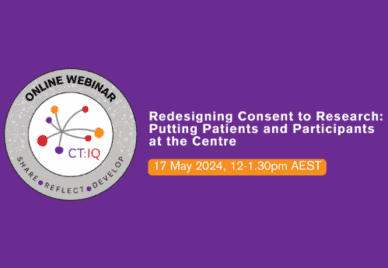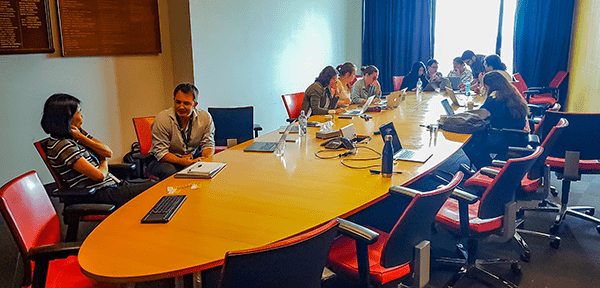
Redesigning Consent to Research: Putting Patients and Participants at the Centre
Go to partner eventabout Redesigning Consent to Research: Putting Patients and Participants at the Centre
Childhood cancer kills more children than any other disease in Australia and tragically, every week three children and adolescents in Australia currently die because of cancer.
Every child is different, every cancer is unique, and so treatment has to be tailored for each individual. To personalise medicine, doctors and researchers need to use the latest innovations and technologies that can provide a unique insight into an individual child’s cancer to enable identification of the drugs likely to target their cancer most effectively.
Enter CAVATICA — a cloud-based platform for collaboratively accessing, sharing, and analysing childhood cancer data. The platform allows scientists worldwide to rapidly access large amounts of genomic data and workflows within a computation and storage environment where they can share, process, integrate, and analyse data. Complex and comparative analyses can be achieved using various open source R and Python packages; and through CAVATICA’s Data Cruncher, data can be shared through interactive Jupyter Notebooks and RStudio.
The Australian Research Data Commons (ARDC), in partnership with Bioplatforms Australia, the Australian BioCommons, Children’s Cancer Institute in Australia, the Centre for Data Driven Discovery in Biomedicine (D3b) in the USA, and Seven Bridges, have been working to expand CAVATICA to utilise Amazon Web Services in Sydney and piloting new capabilities to support Australian initiatives such as Zero Childhood Cancer *.
A/Prof Mark Cowley, Computational Biology Group Leader at Children’s Cancer Institute, says the expansion of CAVATICA has already enhanced international collaboration by providing easier and faster approaches to sharing data and analysing rare childhood cancer data.
“Since we know so little about many paediatric cancer subtypes, it is essential that we share data globally. We may be able to better understand how to treat an Australian patient’s tumour by comparing it to larger numbers of American patients.
“The innovative technology of CAVATICA enables researchers from Australia and the United States to seamlessly share data and novel analysis methods with ease, driving improved outcomes and novel research,” A/Prof Cowley said.

The ARDC, the Australian BioCommons, and the Children’s Cancer Institute hosted a series of workshops and a webinar in early February 2020. Presented by Dr Allison Heath, Director of Data Technology and Innovation, D3b at the Children’s Hospital of Philadelphia, the webinar and a training workshop provided:
The Gabriella Miller Kids First Data Resource Center (Kids First DRC) manages genomic data across structural birth defects and pediatric cancers. Kids First DRC has used CAVATICA to harmonise and process over 15,000 whole genomes, whole exomes, and RNA-seq, including alignment, somatic variant calling, structural variants, RNA expression and fusions.
Head over to CAVATICA’s dedicated website to find out more about the platform and read more about how the ARDC are collaborating with national and international organisations to help Australian researchers cure kids with cancer.
*The Zero Childhood Cancer Program is a joint initiative of Children’s Cancer Institute and Kids Cancer Centre, Sydney Children’s Hospital, Randwick. Jump back